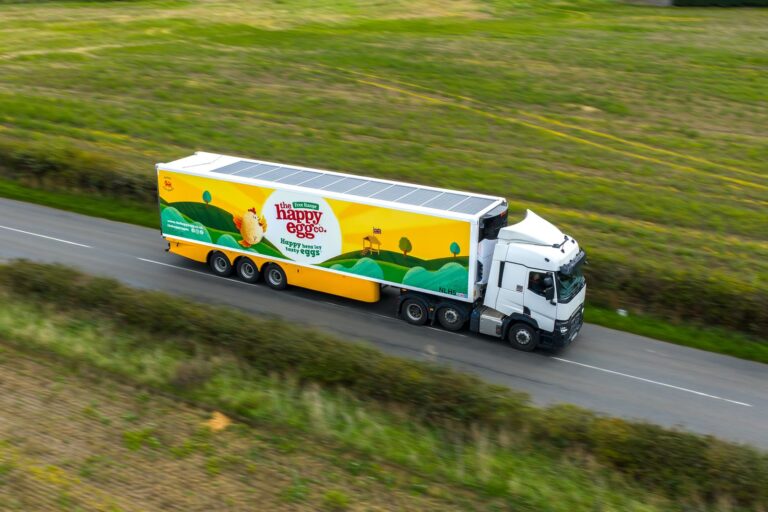Happy Eggs’ parent company Noble Foods has started rolling out the first of 40 zero-emission transport refrigeration units in the UK, supporting its sustainability commitments.
Noble Foods said the deployment follows a successful nine-day trial which demonstrated that the Sunswap solar-powered technology could reduce fleet CO2 emissions by up to 3,120 tonnes over the units’ lifetime.
While the food industry faces mounting pressure to reduce its environmental impact, it must also maintain strict temperature control and food safety standards.
Sunswap’s Endurance units are particularly valuable for Noble Foods’ rural routes, as they generate the majority of their cooling power from the integrated solar panels on the trailer roof. Grid electricity is used to power the refrigeration during loading and unloading operations.
“This partnership with Sunswap represents a meaningful step in our journey toward our Net Zero commitments,” said Glenn Evans, group head of sustainability at Noble Foods.
“The technology has proven capable of maintaining the precise temperature control essential for egg quality while significantly reducing our transport emissions.”
This, he added, supports Noble Foods’ sustainability objectives and the green credentials of consumer-facing brands such as Happy Eggs, while also delivering operational cost savings.
According to Noble Foods, deployment of the solar-powered refrigeration units will deliver an estimated £1.16 million in operational savings, creating a compelling business case for sustainable transport.
“Noble Foods has shown real leadership by adopting this technology, proving that zero-emission refrigeration is ready to meet the specialised needs of agricultural logistics while delivering substantial cost and environmental benefits,” concluded Alastair Gough, head of business development at Sunswap.







